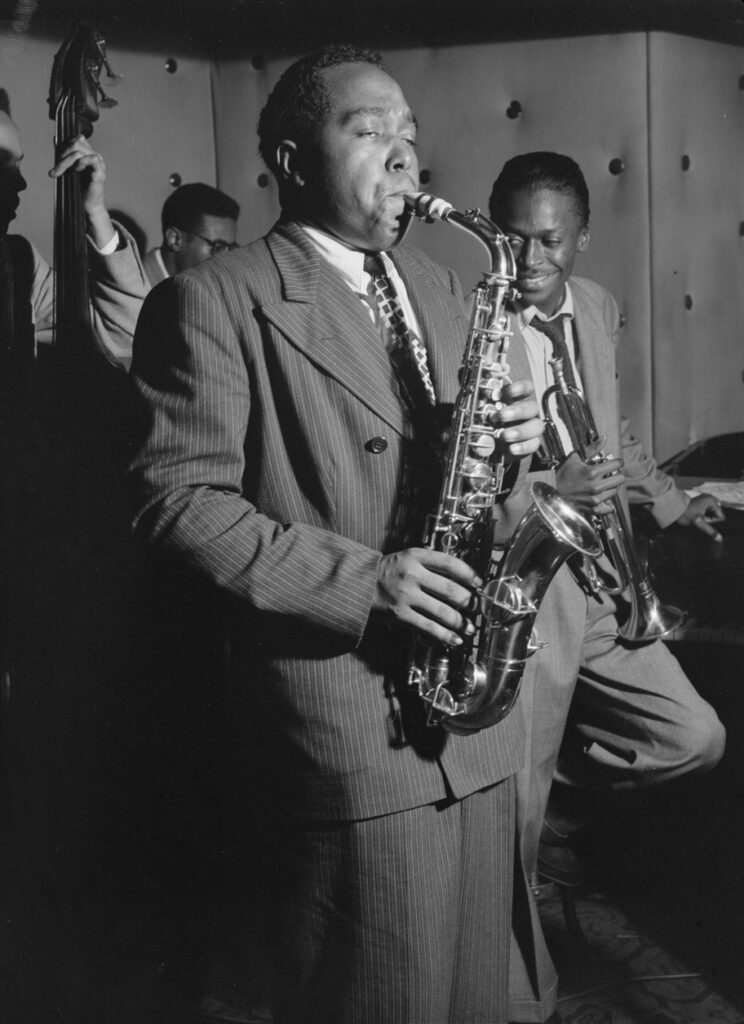Charlie Parker, affectionately known as “Bird,” soared into the realm of jazz as one of its most influential and innovative figures. Born on August 29, 1920, in Kansas City, Kansas, Parker’s journey from humble beginnings to becoming a virtuoso saxophonist and composer is a testament to his unparalleled talent and relentless dedication to his craft.
Growing up in the vibrant jazz scene of Kansas City, Parker was exposed to music from an early age. He began playing the saxophone at 11, drawing inspiration from the likes of Lester Young and Art Tatum. However, it was his encounter with the innovative ideas of trumpeter Dizzy Gillespie that would shape his musical evolution.
In the 1940s, Parker’s groundbreaking improvisational style revolutionized jazz, leading to the development of bebop. With his lightning-fast improvisations, complex melodies, and rhythmic innovations, Parker pushed the boundaries of jazz, captivating audiences and inspiring countless musicians.
Despite his musical genius, Parker’s personal life was marked by struggles with addiction and emotional turmoil. His battles with heroin addiction and alcoholism often overshadowed his musical achievements, leading to periods of instability and hardship.
Nevertheless, Parker’s artistic brilliance remained undiminished. His recordings with Dizzy Gillespie, Thelonious Monk, and Miles Davis are considered classics of the genre, showcasing his unparalleled skill and creativity. Tracks like “Ornithology,” “Now’s the Time,” and “Ko-Ko” stand as enduring masterpieces of jazz.
Tragically, Parker’s life was cut short at the age of 34 when he succumbed to the effects of years of substance abuse and unhealthy lifestyle choices. His untimely death on March 12, 1955, robbed the world of one of its greatest musical innovators.
Despite his short life, Charlie Parker’s legacy looms large in the annals of jazz history. His contributions to the art form continue to resonate with musicians and listeners alike, inspiring generations to push the boundaries of creativity and self-expression. In recognition of his immense impact, Parker was posthumously awarded a Grammy Lifetime Achievement Award in 1984 and inducted into the Grammy Hall of Fame multiple times.
Today, Charlie Parker’s music remains as vital and relevant as ever, a testament to the enduring power of his artistic vision. As fans and scholars continue to explore his vast catalog of recordings and compositions, Bird’s spirit lives on, a beacon of innovation and creativity in the world of jazz and beyond.


No responses yet